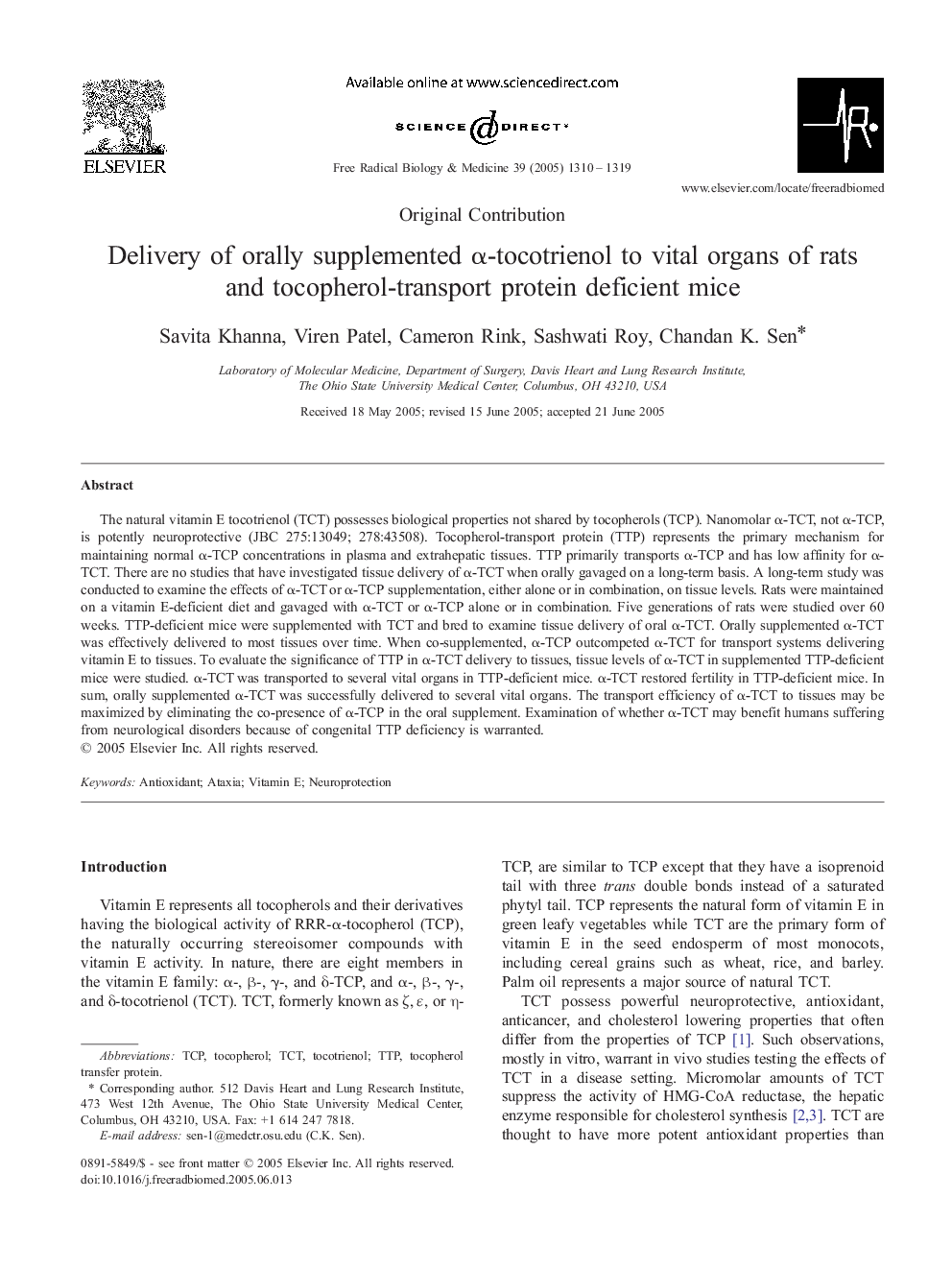| Article ID | Journal | Published Year | Pages | File Type |
|---|---|---|---|---|
| 10739517 | Free Radical Biology and Medicine | 2005 | 10 Pages |
Abstract
The natural vitamin E tocotrienol (TCT) possesses biological properties not shared by tocopherols (TCP). Nanomolar α-TCT, not α-TCP, is potently neuroprotective (JBC 275:13049; 278:43508). Tocopherol-transport protein (TTP) represents the primary mechanism for maintaining normal α-TCP concentrations in plasma and extrahepatic tissues. TTP primarily transports α-TCP and has low affinity for α-TCT. There are no studies that have investigated tissue delivery of α-TCT when orally gavaged on a long-term basis. A long-term study was conducted to examine the effects of α-TCT or α-TCP supplementation, either alone or in combination, on tissue levels. Rats were maintained on a vitamin E-deficient diet and gavaged with α-TCT or α-TCP alone or in combination. Five generations of rats were studied over 60 weeks. TTP-deficient mice were supplemented with TCT and bred to examine tissue delivery of oral α-TCT. Orally supplemented α-TCT was effectively delivered to most tissues over time. When co-supplemented, α-TCP outcompeted α-TCT for transport systems delivering vitamin E to tissues. To evaluate the significance of TTP in α-TCT delivery to tissues, tissue levels of α-TCT in supplemented TTP-deficient mice were studied. α-TCT was transported to several vital organs in TTP-deficient mice. α-TCT restored fertility in TTP-deficient mice. In sum, orally supplemented α-TCT was successfully delivered to several vital organs. The transport efficiency of α-TCT to tissues may be maximized by eliminating the co-presence of α-TCP in the oral supplement. Examination of whether α-TCT may benefit humans suffering from neurological disorders because of congenital TTP deficiency is warranted.
Keywords
Related Topics
Life Sciences
Biochemistry, Genetics and Molecular Biology
Ageing
Authors
Savita Khanna, Viren Patel, Cameron Rink, Sashwati Roy, Chandan K. Sen,
